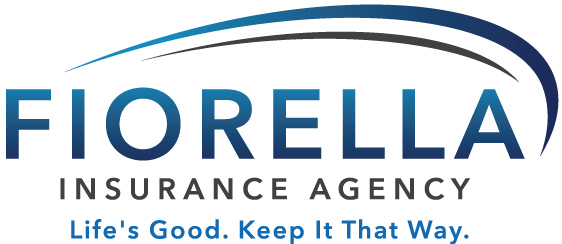Who pays your health insurance while on workers’ compensation? This question is regularly asked by those who have endured a sickness or injury related to their job. Unfortunately, the answer is often not simple. It can be shrouded in the complexities of insurance policies and legal jargon.
Navigating through this maze of information can feel overwhelming. Especially when you’re already dealing with the stress of recovery from an injury or illness. But here’s some good news: understanding who pays your health insurance during workers’ compensation doesn’t have to be daunting.
Let’s break it down together!
Table of Contents
- The Intersection of Workers’ Compensation and Health Insurance
- Health Insurance: Who Pays During Workers’ Compensation?
- Navigating Work-Related Injuries with Health Insurance
- Understanding Wage Replacement with Workers’ Compensation
- What Happens When an Employer Denies Your Injury?
- Deciphering Between Health Insurance and Workers’ Compensation
- Decoding COBRA During Medical Leave
- FAQs in Relation to Who Pays Your Health Insurance While on Workers’ Compensation
- Who pays for my health insurance while on workers’ comp in Caluestionifornia?
- Who pays for my health insurance while on workers’ comp in New York?
- Who pays for my health insurance while on workers’ comp in Pennsylvania?
- Does my employer have to pay my health insurance while on workers’ comp in Massachusetts?
- Conclusion
The Intersection of Workers’ Compensation and Health Insurance
Workers’ compensation insurance and health insurance are two distinct types of coverage that cater to different needs. For employees, especially those working in small businesses where the nature of business operations can affect purchasing decisions, it’s vital to understand these differences.
Workers’ comp is primarily designed to protect employees against workplace injuries or illnesses. This form of coverage takes care not only of immediate medical expenses but also of ongoing treatments or rehabilitation services necessary due to work-related incidents.
In contrast, health insurance policies offer a broader scope of coverage. Health insurance policies provide a much broader scope of coverage, including preventative care and treatments for unrelated conditions.
Navigating Your Coverage Options: Worker’s Comp vs Health Insurance
An important aspect distinguishing between worker’s comp and health insurance is their approach towards wage replacement. While workers’ compensation policies offer lost wages benefits during the recovery period after an incident at work, standard healthcare plans do not provide such provisions. Health insurance plans focus more on managing medical bills rather than compensating for income loss.
It is advised that small business owners consider factors such as company size, risk level associated with the industry type, and state laws before deciding whether to offer workers’ comp to their employees.
Policies Keeping Employees Covered During Medical Leave Act
If you’re out on leave due to an illness or injury sustained at the workplace, COBRA generally applies to ensure continued access to your existing healthcare plan. This safeguards the financial stability of families and individuals who would otherwise be left without any support during challenging times brought forth by unexpected events that life often throws our way.
Workers’ comp and health insurance serve different purposes. Workers’ comp covers medical expenses and lost wages due to work-related injuries, while health insurance provides a broader range of services unrelated to employment status. If you’re on leave due to a workplace injury or illness, COBRA helps maintain your existing healthcare plan.
Health Insurance: Who Pays During Workers’ Compensation?
In the realm of health insurance, Ohio stands out with an impressive 94% coverage rate among its residents. This widespread protection comes from a blend of sources including employer-sponsored plans, individual market policies, and government programs like Medicaid and Medicare.
The interplay between health insurance and workers’ compensation is crucial for those facing workplace injuries or illnesses. Often, medical bills arrive before a worker’s comp claim gets approved – this is where your standard health insurance can play a vital role.
Reimbursement from Workers’ Compensation Insurers
Your regular health insurer steps up to cover initial treatment costs under the expectation that they will be reimbursed by the workers’ compensation insurer once your claim has been processed successfully. Behind-the-scenes legal complexities are involved here, but these are managed directly between both insurers without you having to get entangled. Discover more about how this process unfolds here.
To sum it up succinctly: being insured through both channels – healthcare policy as well as workers’ comp – offers comprehensive financial support during challenging times caused by work-related incidents. It’s important for all employees to purchase workers’ compensation insurance alongside their healthcare plan so they’re prepared when unexpected circumstances arise at work.
Navigating Work-Related Injuries with Health Insurance
When it comes to navigating work-related injuries, the interplay between health insurance and workers’ compensation can be intricate. It’s not rare for health insurers to reject coverage if a worker is in the midst of filing for workers’ comp.
Keeping Job-Related Benefits While on Workers’ Comp
Injured employees who are receiving benefits through a workers’ compensation claim typically retain their job-related benefits, including access to preventative care via their existing health insurance. This ensures they continue benefiting from regular healthcare services unrelated directly to their workplace injury.
Policies regarding maintaining these perks during medical leave vary significantly across companies and state regulations. Therefore, understanding your employer’s specific policies becomes crucial when you start receiving workers’ comp benefits after sustaining an accident at work.
The Role of Professional Guidance in Navigating Claims
Understanding Wage Replacement with Workers’ Compensation
In the realm of workers’ compensation, wage replacement plays a pivotal role. Contrary to health insurance that doesn’t cater to lost wages due to injury or illness, workers’ comp comes into play when an employee is incapacitated and unable to work.
This financial buffer serves as a lifeline for employees during their recovery phase. It’s computed based on the injured worker’s average weekly earnings before the incident occurred and varies from one state jurisdiction to another.
Timeframe for Receiving Workers’ Compensation Benefits
Navigating through filing a claim for workers’ compensation benefits can be quite intricate. Once you’ve reported your injury and lodged your claim, there might be an interim period prior to start receiving workers’ comp benefits.
The waiting period usually spans seven days post-injury in most states. However, if injuries prevent you from resuming work after this timeframe, payments should commence accordingly.
Bear in mind these general rules apply across numerous jurisdictions, but specific laws fluctuate by state and situation. Hence, it’s imperative that injured employees seek advice from legal professionals or trusted advisors well-versed with local regulations regarding their entitlements under workers’ comp policies.
What Happens When an Employer Denies Your Injury?
In the event that your employer disputes your workplace injury, it can lead to a complex situation with regards to filing a workers’ compensation claim. Nevertheless, you can take steps to protect yourself and ensure your rights are respected.
The first measure involves thorough documentation of everything related to the incident. This includes medical records from healthcare providers who treated you, photos showcasing injuries or unsafe conditions at work, as well as testimonies from witnesses present during the accident. Having this evidence could be critical if legal action becomes necessary in the future.
Sometimes getting help from legal counsel might be advantageous for employees purchasing workers’ compensation insurance claims when faced with uncooperative employers.
Taking Legal Counsel into Account
A lawyer specializing in health insurance workers’ compensation laws will have knowledge about how these regulations apply within each state since they vary widely across jurisdictions. They’ll also know what kind of evidence is required for strengthening a claim and how best it should be presented either during negotiations or court proceedings if needed.
An experienced attorney would also understand how insurers operate, familiarizing themselves with tactics used by them aimed at minimizing payouts on claims. Their expertise may prove crucial while dealing with obstinate employers or their respective insurance providers. Insureon provides resources regarding worker’s comp coverage which might come in handy under such circumstances.
Navigating Through Disputes Over Workers’ Comp Claims
If conflicts arise over whether an injury qualifies for workers’ comp benefits, the states provide dispute resolution services like mediation or arbitration before resorting to lawsuits. In cases where COBRA generally applies due to an employee being out on medical leave because of a workplace illness, ensuring access to the existing healthcare plan despite changes in employment status. The U.S Department of Labor offers resources pertaining to specific procedures followed by different states regarding disputed claims which could assist under such scenarios.
When facing a disputed workplace injury, arm yourself with thorough documentation and consider legal counsel. Expert attorneys can navigate complex workers’ compensation laws and insurer tactics. In case of disputes over claims, states offer resolution services like mediation or arbitration.
Deciphering Between Health Insurance and Workers’ Compensation
Choosing between utilizing health insurance or filing a workers’ compensation claim post-workplace injury is no easy task. The choice depends on your specific circumstances, including the severity of injuries sustained, the policies of both insurances, and potential long-term implications.
The Role of Long-Term Disability Coverage
In instances w# severe work-related injuries result in extended absence from work, understanding how long-term disability coverage interacts with health insurance and workers’ compensation benefits becomes crucial. This type of coverage typically provides part of your salary if you’re unable to perform job duties for an extensive period due to illness or injury.
Bear in mind that receiving workers’ comp might decrease what’s received from long-term disability insurance. It’s imperative employees comprehend these interactions prior to making decisions about their claims.
Navigating Independent Contractors Options
The situation changes when it comes to independent contractors who may not be covered by traditional employer-provided workers’ comp or group health insurances. In many states, employers aren’t mandated to provide workers’ compensation insurance for independent contractors, which leaves them facing limited options should they suffer workplace injuries.
- Purchasing Individual Policies:
An option available is relying on private health care plans they already have in place or purchasing individualized workers’ compensation policies offering potentially better protection against occupational hazards but at higher costs than standard healthcare plans. More information can be found # regarding contractor options.
Decoding COBRA During Medical Leave
Navigating health insurance during medical leave due to a workplace injury or illness can be complex. COBRA is a federal law that enables workers to keep their existing group health coverage when certain life events occur, such as job loss or reduction in hours.
COBRA serves as a protective measure for employees, allowing them to maintain their existing group health coverage under certain circumstances such as job loss, reduction in work hours, and other life events.
The U.S. Department of Labor offers comprehensive insights about COBRA, including eligibility criteria and its workings. It is imperative that those taking medical leave be cognizant of COBRA’s details in order to make an informed decision regarding their healthcare.
Pricing Implications Of Opting For COBRA
The decision to opt for COBRA isn’t without financial implications. Typically, individuals covered by this provision bear 100% of the premiums plus an administrative fee themselves.
This often makes it more expensive than alternatives like purchasing insurance through open enrollment or special enrollment periods if eligible via Health Insurance Marketplace. HealthCare.Gov provides resources to help you evaluate costs and benefits across different choices.
Gauging Coverage Duration Under COBRA
The length of your continued coverage under COBRA hinges on several factors such as the type of qualifying event leading to the loss of health coverage, among others. This duration typically spans from 18-36 months, but specifics vary based on individual situations, which should be thoroughly understood when considering this option.
FAQs in Relation to Who Pays Your Health Insurance While on Workers’ Compensation
Who pays for my health insurance while on workers’ comp in California?
In California, your employer’s workers’ compensation insurance covers medical expenses related to work injuries. Your regular health insurance remains active but is secondary.
Who pays for my health insurance while on workers’ comp in New York?
New York law requires employers to maintain workers’ compensation coverage. This policy should handle the costs of work-related injuries or illnesses, with your personal health insurance as a backup.
Who pays for my health insurance while on workers’ comp in Pennsylvania?
Pennsylvania mandates that employers provide workers’ compensation coverage. Therefore, it should cover all medical bills from workplace injuries, not your personal health insurer.
Does my employer have to pay my health insurance while on workers’ comp in Massachusetts?
In Massachusetts, an employer isn’t required by law to continue paying premiums for employees’ group healthcare during their absence due to a workplace injury covered under workers’ compensation.
Conclusion
Knowing who pays your health insurance while on workers’ compensation is an essential knowledge. You’ve learned that while on workers’ compensation, your employer continues to pay for your health insurance as part of job-related benefits.The role played by wage replacement in workers’ comp is clear; it’s a lifeline when you’re unable to work due to injury.
And remember, if an employer denies your injury occurred at work, don’t panic. Document everything and consider seeking legal counsel. We’ve also delved into choosing between using health insurance or filing a worker’s comp claim – each situation requires careful consideration!
If faced with long-term disability from severe injuries, understanding how this interacts with both insurances becomes vital too!



